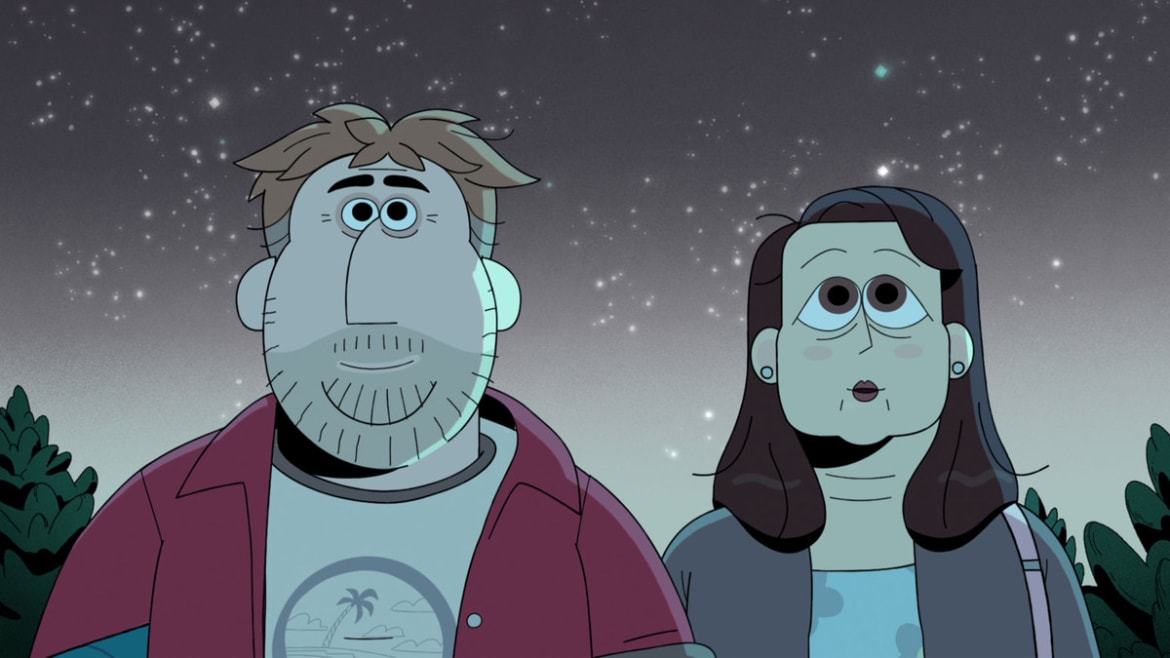Netflix
What would you do if you knew the world was ending in the near future? After the initial wave of panic and terror subsides, it stands to reason that, with a finite amount of time left on Earth, many people would feel free to live the life they had always wanted to live. They’d check off items on their bucket lists, maximize quality time with friends and loved ones, and generally embrace all kinds of pleasure, even if it’s just a way to avoid confronting the total end of humanity.
The animated limited series Carol & the End of the World (streaming on Netflix Dec. 15) treats this outlook as an assumed, majority-held worldview: The giant planet that will collide with Earth in seven-and-a-half months renders jobs a thing of the past and allows people to fully embody their most indulgent, impulsive selves. Yet the series takes a decidedly different approach to the apocalypse story by following a person who doesn’t feel liberated by the end of the world. Carol Kohl (voiced by stand-up comedian Martha Kelly), a mild-mannered middle-aged woman, doesn’t have any grand dreams to live out and has no interest in embracing a hedonistic lifestyle. What she craves is something society has done away with after realizing they’re all doomed: the routine of the workaday world.
Enter The Distraction, the accounting department in seemingly the last semi-functioning office building, which Carol stumbles upon after aimlessly following a besuited woman off the train. When she enters the office, which is filled with rows and rows of workers sitting at desks intently typing away on computers, she’s immediately handed a cup of coffee and almost just as quickly given a job as an administrative assistant. Carol is soon thrust into the mundane white-collar world—complete with corny elevator jokes and headaches around replacing printer toner—where she ultimately feels right at home, away from the mass of hyper-promiscuous partiers and windsurfers and faux-enlightened travelers that make up the rest of the population.

